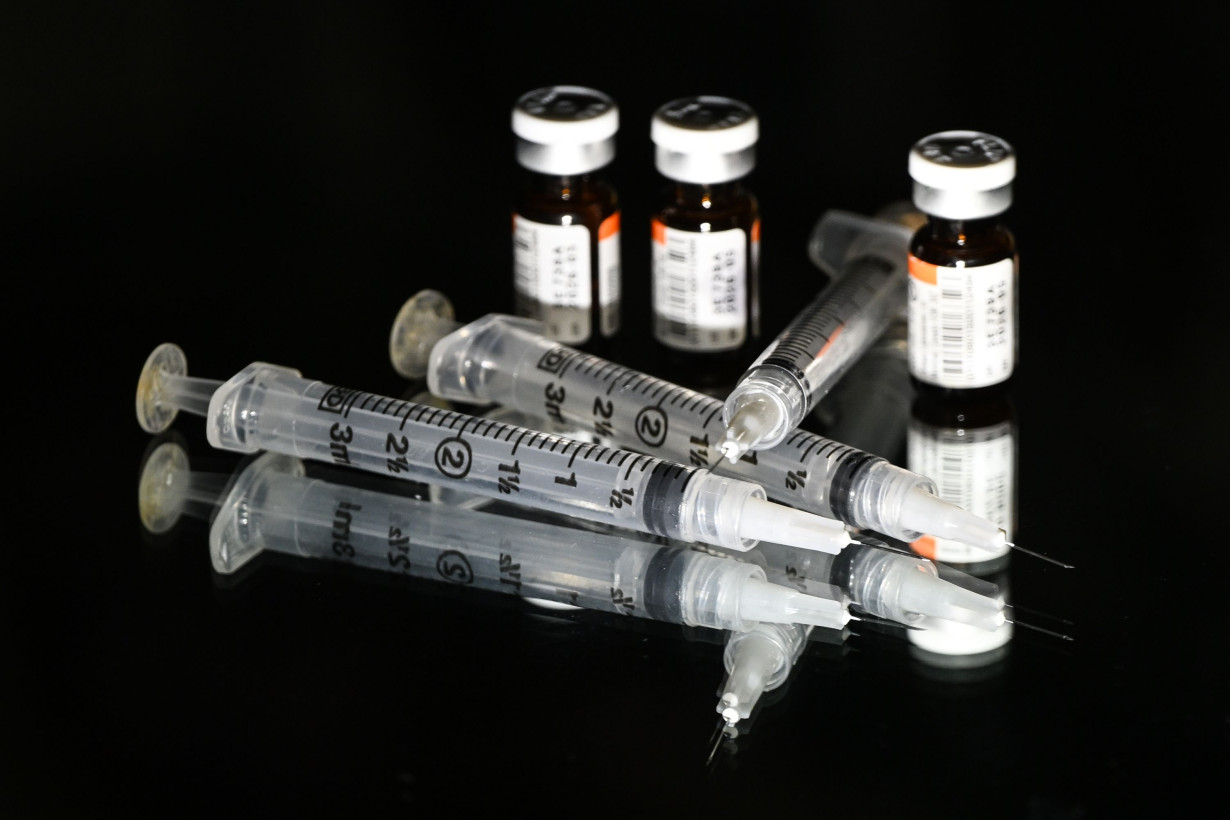(CNN) — Concern is growing among public health experts that anti-vaccine sentiment within federal and state governments may derail emerging and cutting-edge vaccines that are now awaiting regulatory approval in the United States – essentially leaving those vaccines in limbo.
Just last week, the US Food and Drug Administration delayed a decision on full approval of Novavax’s Covid-19 vaccine even though it was on track to be cleared, leaving many public health experts wondering why. A person familiar with the situation told CNN that the FDA is seeking more data on the vaccine, which has been available under emergency use authorization since 2022.
It was the first Covid-19 vaccine to come up for FDA action since the second Trump administration took office in January.
The surprise delay is casting new uncertainty on the fate of another vaccine awaiting FDA action: Moderna’s next-generation Covid-19 shot, called mRNA-1283, which is set for a decision by May 31.
The company has also filed for FDA approval of its flu+Covid combination vaccine, mRNA-1083. If approved, it will be the first in the US to offer protection against flu and Covid-19 in a single shot.
The quest for more efficient vaccines
Seasonal flu shots and Covid-19 vaccines are recommended each respiratory virus season, which comes over the fall and winter. These vaccines can be given at the same time, but they come in separate formulations and packaging. Vaccine makers have been developing shots that combine them in an effort to make vaccination more efficient.
Moderna intends to make all three vaccines – seasonal flu shots, Covid-19 shots and the new combination vaccines – available as it’s able, Dr. Rituparna Das, the company’s vice president of respiratory development, said in an email.
In June, Moderna released trial data showing that the combo shot, mRNA-1083, was safe and elicited higher immune responses against influenza virus and the coronavirus than currently licensed seasonal flu and Covid-19 vaccines in adults 50 and older.
“We are excited about the potential for 1083 as a combination vaccine that could improve protection against flu and COVID in a single shot,” Das wrote. “For the past several years, it has been these two respiratory viruses which caused challenges for hospital systems in the fall.”
Combination vaccines are already common in pediatrics, for instance, where the measles-mumps-rubella (MMR) vaccine is widely used and the DTaP vaccine can prevent diphtheria, tetanus and pertussis in a single jab.
And Moderna isn’t the only company developing a flu+Covid combination shot.
Pfizer and BioNTech have teamed up to develop an influenza and Covid-19 combination vaccine that uses mRNA technology, starting multiple clinical trials evaluating updated formulations. Novavax intends to seek a business partner to continue the research and development of its influenza and Covid-19 combination vaccine candidate, which is protein-based rather than mRNA-based.
“We know that significant market demand exists for a combination product, with greater than 60% of consumers stating a preference for an all-in-one option,” Silvia Taylor, executive vice president and chief corporate affairs and advocacy officer at Novavax, said in an email.
But when it comes to these new and emerging vaccines, there are mounting concerns that they may face the same fate as Novavax’s Covid-19 vaccine: delayed regulatory action.
MRNA technology faces political attacks
Unlike Novavax’s Covid-19 shot, which uses traditional protein-based technology, Moderna’s mRNA-1283 Covid-19 vaccine and the flu+Covid combination vaccines being developed by Moderna and Pfizer/BioNTech are mRNA vaccines. This means they harness a modified version of messenger RNA – a molecule that tells cells what to do based on the information contained in DNA – to direct cells to produce proteins that help the immune system recognize and defend against a particular pathogen: in this case, flu viruses and the coronavirus that causes Covid-19.
MRNA technology is already used in Moderna’s and Pfizer/BioNTech’s currently licensed Covid-19 vaccines, which have been found to be safe and effective.
There is growing concern among public health experts about whether anti-vaccine sentiments – as well as bills to ban shots that use mRNA technology – may block people from accessing not only a flu+Covid vaccine but any vaccine, said Lori Tremmel Freeman, chief executive officer at the National Association of County and City Health Officials.
“I absolutely believe the environment is ripe for more jurisdictions to pick up those kinds of pieces of legislation,” Freeman said.
“It is a dangerous way to go,” she said. “Low vaccination rates create the perfect environment for the spread of infectious disease.”
Dr. Peter Hotez, co-director of the Texas Children’s Hospital Center for Vaccine Development and dean of the National School of Tropical Medicine at Baylor College of Medicine, also worries about anti-vaccine sentiments in politics as well as how mRNA vaccines specifically have been attacked.
“This is playing out now in some state legislatures that are trying to ban mRNA vaccines because of disinformation from the anti-vaccine lobby saying that they integrate into our DNA, that they cause turbo cancers, that they inflate the side effects,” Hotez said.
Lawmakers in some states have introduced measures to ban the administration of mRNA vaccines, such as Montana, where a bill was defeated; Iowa and Idaho, where measures have advanced to committee; and Texas, where bills are pending or under review.
At the federal level, the Trump administration is looking to evaluate mRNA research and technology and ensure transparency, according to an administration official.
The US Department of Health and Human Services has also asked the US Centers for Disease Control and Prevention to study vaccines and autism, a person familiar with the situation told CNN in March, despite strong evidence that vaccines do not cause autism.
And Dr. Peter Marks, director of the FDA’s Center for Biologics Evaluation and Research, who was instrumental in the development and authorization of mRNA vaccines during the Covid-19 pandemic, was forced out of the agency this month.
At the National Institutes of Health, some officials reportedly have urged scientists to remove references to mRNA vaccine technology from their grant applications, suggesting that the agency might abandon that area of research, according to KFF Health News.
“Researchers have been exploring mRNA’s potential in medicine for over 30 years,” Moderna spokesperson Jenna Sexton said in an email, adding that more than a billion doses of mRNA vaccines have been distributed worldwide and “an unprecedented amount of real-world safety and efficacy data” is well-established.
“Legislative efforts to ban or restrict mRNA medicines in various states are largely driven by misunderstandings about their well-established safety profile and mechanism of action,” Sexton said. “For example, while mRNA does not modify DNA, this misconception is frequently cited in support of such policies. If enacted, these measures could hinder important research and limit patient access to innovative treatments, potentially delaying life-changing medical advancements.”
This trend of lawmakers pushing to ban the use of mRNA technology is “striking” and suggests that scientists and doctors could do a “better job” of communicating with the general public, public health officials and lawmakers about the overall benefits and risks of mRNA medicines, said Dr. Dan Barouch, director of the Center for Virology and Vaccine Research at Beth Israel Deaconess Medical Center.
“A complete ban on a technology would be a very striking move, as opposed to exploring a concern with a particular product. It’s like saying that there is something that you dislike about a website, so you’re going to ban the entire Internet,” Barouch said.
“MRNA technology is used for many things, not just infectious disease vaccines. There are cancer therapies that are being developed,” he added. “There’s gene editing and gene therapies that are being developed.”
Some public health experts argue that scrutiny around mRNA technology is an extension of anti-vaccine sentiments in politics.
“I think that was kind of a false notion that people had – that there’s hesitancy around the mRNA vaccine, and those people will get a protein-based vaccine. They didn’t,” said Dr. Amesh Adalja, a senior scholar at the Johns Hopkins Center for Health Security.
“They didn’t get the J&J vaccine very much when it was available, and they didn’t get the Novavax vaccine, which has been available since the EUA was issued,” he said. “You have to think about this as no vaccine being safe in this administration, in terms of from political interference.”
‘You only have to roll up one sleeve’
If a flu+Covid combination vaccine does eventually get FDA approval, it might help improve vaccination rates because “you only have to roll up one sleeve to get your vaccine, and you can get two at the same time and get good, solid protection as recommended,” said Dr. William Schaffner, an infectious disease expert at Vanderbilt University Medical Center.
But he added that it could still take some time before combination vaccines are ordered and rolled out to the general public, as they would have to be licensed under the FDA and then recommended by the CDC as part of the routine seasonal vaccination schedule.
Most doctor’s offices, clinics, hospitals, health departments and pharmacies are gearing up to place orders for seasonal flu and Covid-19 vaccines for the 2025-26 virus season, as preorders typically begin around March, Schaffner said. The vaccines are usually delivered starting around August.
“The combination vaccines may or may not become available for this fall,” Schaffner said. “The ordering takes place months before we start administering the vaccine, and that, of course, allows the manufacturers to get a sense of how much vaccine to manufacture. So it’s a complicated process.”
Some vaccine experts argue that mRNA technology can speed up that process.
When it comes to the composition of flu shots, the use of mRNA vaccination against influenza “is still not well-established, except in experimental studies,” Hotez said, so using mRNA technology in flu+Covid combination vaccines “would establish proof of concept.”
“If that gets shown, that could be a big breakthrough,” he said. “Because it means that we could perhaps shorten the period required for making influenza vaccines as we get closer to flu seasons and have a better match between circulating viruses and the vaccine.”
The currently licensed seasonal flu shots, which are not mRNA-based, are developed months in advance because they’re updated each year to target whichever strain is expected to circulate the most, and they take some time to manufacture. By the time the vaccines are given, the flu strains they are updated to target may no longer be dominant.
“But you can make a piece of mRNA very quickly, and possibly closer to the actual fall-winter flu season,” Hotez said.
“As a result, you might be able to reduce the time frame required to make the decision on what goes into the flu vaccine,” he said. “With mRNA, we could delay that decision on what goes into the vaccine – maybe for a couple of months, until May or so – until we have a better idea of what’s circulating. So there could be some advantage there.”
The-CNN-Wire
™ & © 2025 Cable News Network, Inc., a Warner Bros. Discovery Company. All rights reserved.

 Trump has begun another trade war. Here's a timeline of how we got here
Trump has begun another trade war. Here's a timeline of how we got here
 Canada's leader laments lost friendship with US in town that sheltered stranded Americans after 9/11
Canada's leader laments lost friendship with US in town that sheltered stranded Americans after 9/11
 Chinese EV giant BYD's fourth-quarter profit leaps 73%
Chinese EV giant BYD's fourth-quarter profit leaps 73%
 You're an American in another land? Prepare to talk about the why and how of Trump 2.0
You're an American in another land? Prepare to talk about the why and how of Trump 2.0
 Chalk talk: Star power, top teams and No. 5 seeds headline the women's March Madness Sweet 16
Chalk talk: Star power, top teams and No. 5 seeds headline the women's March Madness Sweet 16
 Purdue returns to Sweet 16 with 76-62 win over McNeese in March Madness
Purdue returns to Sweet 16 with 76-62 win over McNeese in March Madness








